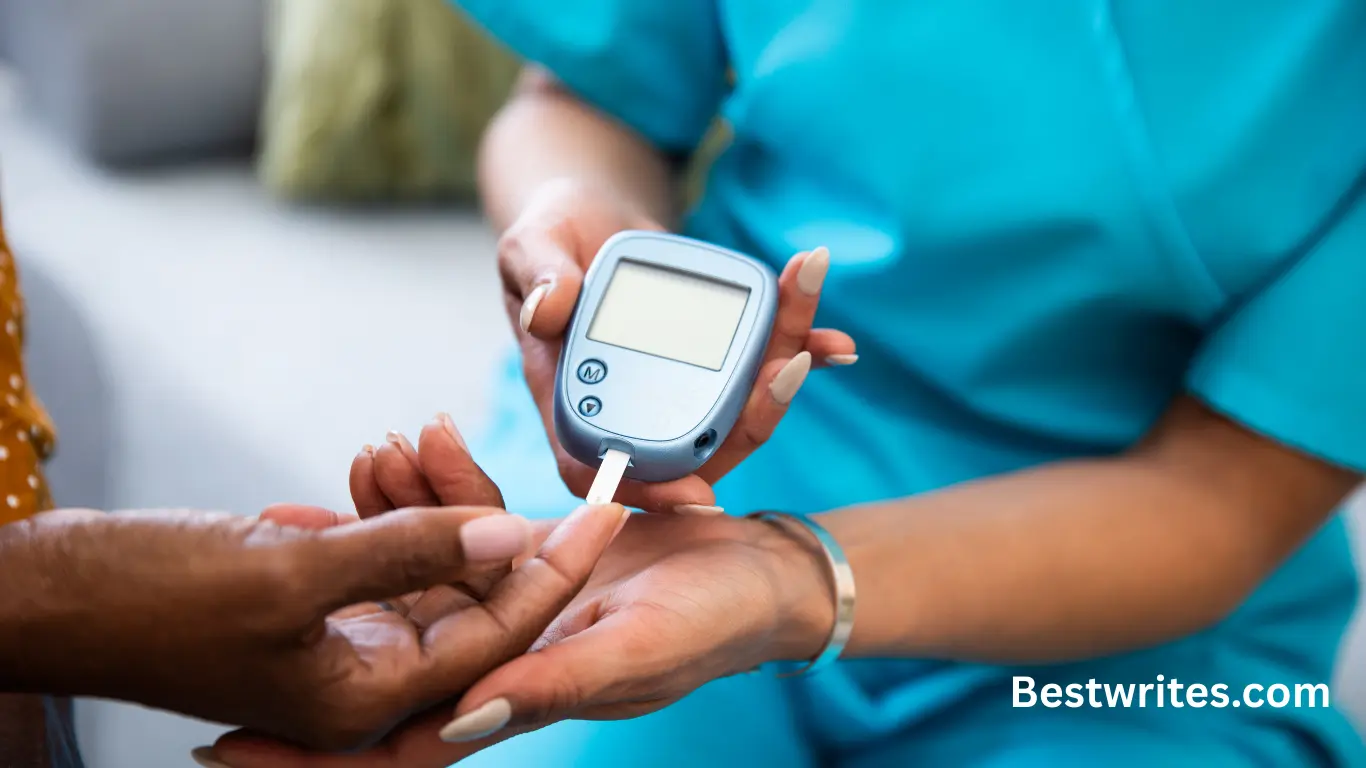Plasma donation can save the lives of people who don’t have strong immune systems, problems with blood clotting, or who have suffered serious accidents. Donating plasma with diabetes may be curious about the plasma donation center eligibility criteria. In this blog, we will cover everything about whether diabetics can donate Plasma or not.
It is usually possible to donate plasma even if you have diabetes, as long as your condition is well-controlled and you follow the FDA’s plasma donation eligibility guidelines for diabetics, as well as guidelines from organizations like the American Red Cross.
What Is Plasma Donation?
Plasma is the pale liquid part of blood. It is mostly made up of water and proteins. It is very important for getting nutrients, hormones, and antibodies to all parts of the body. Plasma is collected and used to make treatments for people who have burns, problems with blood clotting, or problems with their immune systems.
How plasma donation works for people with diabetes?
During plasmapheresis, blood is taken from your arm, plasma is separated, and the rest of your blood is given back to you. This process is safe for most healthy people and many people whose diabetes is under control. Donation centers have a plasma donor medical screening process and a plasma donation medical history screening to make sure you are eligible.
Can Diabetics Donate Plasma?
Yes, donating plasma if you have diabetes varies depending on the type of diabetes, how well it is managed, and the plasma donation center eligibility criteria. Most of the time, you may be eligible if your blood sugar is under control and your health is generally good. People who don’t have their diabetes under control, have certain problems, or have recently changed the medicine they take are limited in what they can do. Always call your local plasma donation center in America to make sure you know what the rules are for people with diabetes who want to donate plasma.
Types Of Diabetes
There are four main types of diabetes
Type 1 Diabetes
An autoimmune disease in which the body’s immune system attacks cells in the pancreas that make insulin. With type 1, people will always need insulin.
Type 2 Diabetes
It’s the most common type, and it happens when the body either doesn’t make enough insulin or doesn’t use insulin well. Often connected to genetics and lifestyle.
Gestational Diabetes
During pregnancy, it generally goes away after birth, but it makes you more likely to get type 2 diabetes later on.
Other Specific Types
This group includes uncommon types like MODY (Maturity Onset Diabetes of the Young) and LADA (Latent Autoimmune Diabetes in Adults). It also includes diabetes that is caused by some medical conditions or medicines.
Differences Between Type 1 and Type 2 Diabetes
Can type 1 diabetics donate plasma?
Yes, as long as you meet the type 1 diabetes plasma donor requirements, your blood sugar stays stable, and you don’t have any serious complications like advanced kidney disease or neuropathy.
Can type 2 diabetics donate plasma?
No, the type 2 diabetes plasma donation rules usually let people donate plasma who have well-controlled glucose. This is true whether the glucose is managed by making changes to their lifestyle, taking oral medication, and plasma donation safety.
Blood Donation vs Plasma Donation for Diabetics
Donating plasma instead of whole blood takes most of the blood components back to your body, which can help you get better faster. Many people with diabetes find that giving safe plasma is easier on their bodies than giving whole blood.
Blood sugar level requirements for plasma donation
Diabetes and blood plasma donation centers typically require:
- Plasma donation requirements for diabetics are that you must be at least 18 years old and weigh at least 110 pounds.
- One of the plasma donation rules for diabetics is Stable diabetes without recent stays in the hospital.
- Making sure your blood sugar is at the right level for plasma donation, not too high or too low, on the day of the gift.
- No serious complications from diabetes or worries about plasma donor acceptance.
What is Plasma Donation and Insulin Use?
If your glucose control is stable and you feel good, insulin therapy and plasma donation are typically allowed. In the same way, most healthy donors can donate plasma with diabetes medication like metformin or other oral drugs.
Does giving plasma while having high blood sugar still work?
There are a few diabetes and plasma donor restrictions. When blood sugar is high, giving plasma is dangerous and isn’t always allowed. High glucose can make you feel different while donating and make you more likely to become dehydrated. Keeping up with plasma donation with controlled diabetes is important for your safety and to follow the plasma donation diabetes guidelines.
Getting ready to donate plasma while having diabetes?
Glucose control before plasma donation
A good meal should have protein, healthy fats, and complex carbs.
Stay well-hydrated and Eat Well.
Don’t skip meals; this will help you meet the standards for glucose control before plasma giving.
Talk to staff members.
Always let staff know about your diabetes and past plasma donations. Full disclosure helps ensure everyone’s chronic illness and plasma donation eligibility. You should also ensure that those who want to donate plasma are properly checked out. In a nutshell, you need to ensure it is a safe plasma donation with diabetes.
Post-Donation Care for Diabetics
For diabetics, donating plasma means paying extra attention to their bodies’ signals so they don’t get tired or have blood sugar changes.
Monitor Blood Sugar and Rehydrate
After giving blood, check your blood sugar right away and again later that same day. To get back the plasma volume you lost, drink a lot of water or sugar-free drinks.
Rest and Avoid Strenuous Activity
Don’t push yourself today. To help your body heal quickly, don’t do any heavy work or exercise.
Possible health risks of plasma donation for diabetics
Even though plasma giving is usually safe, here are some health risks that diabetics may face
- Feeling dizzy or tired for a short time.
- A small drop in blood sugar.
- Occasionally, consequences from diabetes get worse.
How Often Can You Donate?
Most centers follow the FDA’s rules that say diabetics can donate plasma up to twice a week, with at least 48 hours between donors. Depending on your overall health, your doctor can tell you to wait longer between visits.
Now you must be aware of whether Can Diabetics Donate Plasma or not. It is safe and possible for many people with diabetes to donate plasma as long as they follow the right steps and get medical clearance. If you have Type 1 or Type 2 diabetes and follow the rules for diabetic plasma donors and keep your condition under control, you can help save lives while also keeping your own health safe.
FAQs
Why can’t diabetics give plasma?
If a diabetic’s blood sugar is well under control, they can often give plasma. But unstable blood sugar, certain conditions, or problems with medications may make it unsafe to donate.
What conditions disqualify you from donating plasma?
If you have infections, certain heart diseases, low hemoglobin, or have recently had surgery, or if you have any other health risks that could hurt you or change the quality of your plasma, you may not be able to participate.
What are the side effects of a diabetic donating plasma?
Some side effects that could happen are brief dizziness, tiredness, or changes in blood sugar. Keeping yourself hydrated, eating before, and keeping an eye on your glucose levels can all help lower your chances.
Can you donate blood if you have diabetes?
Yes, a lot of diabetics can give blood as long as they take care of their situation well. But people with diabetes that isn’t under control or problems from it may not be able to give blood safely.








